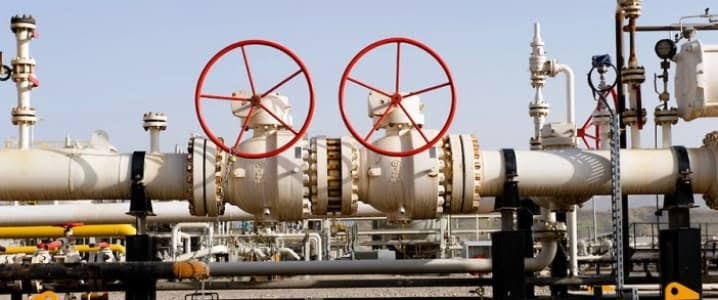Nigeria, Africa’s largest oil producer, has seen a significant boost in its crude oil output in December 2023, signaling improved earnings from the vital resource.
According to the latest Monthly Oil Market Reports (MOMRs) from the Organisation of Petroleum Exporting Countries (OPEC), Nigeria produced 1.34 million barrels of oil per day in the month, based on primary sources. This represents a 6.8 percent increase from 1.25 million bpd in November 2023 and a 6.1 percent rise from 1.26 million bpd in January 2023.
The average price of Brent crude, the international oil benchmark which Nigeria is gauged, stood at $77.63 per barrel in December, according to Statista. This means that Nigeria could have earned about $3.14 billion from oil exports in the month, assuming a 2.5 percent discount on Brent.
Nigeria’s oil production increase comes amid a global recovery in oil demand and prices, as well as a gradual easing of production cuts by OPEC and its allies, known as OPEC+. The group agreed in December to raise output by 400,000 bpd every month until the end of 2022, bringing back 2 million bpd of supply to the market.
Nigeria’s oil minister, Heineken Lokpobiri, attributed the rise in crude oil and condensate production to the government and sector operators identifying and resolving the source of the problem that had plagued the industry for years.
“We have a sole agenda and it is to increase crude oil production. Once you increase production there will be more revenue for Nigeria and that is the recipe for virtually all the problems we have in this country,” he said.
“You know that Nigeria is very dependent on oil, even our budget is always predicated on how many barrels of oil we produce. Although the non-oil sector is thriving, for us to solve our problems we need to earn enough Forex,” he added.
Another indicator of the increased activity in the upstream sector is the rise in the rig count, a major index for measuring drilling operations. Nigeria’s rig count increased to 16 in December 2023, indicating a 23 percent growth from January 2023, according to data obtained from OPEC. On a month-on-month basis, the nation’s rig count increased from 14 recorded in November 2023, indicating an increase of 14 percent.
Kelvin Emmanuel, an energy expert, and co-founder/CEO at Dairy Hills, a consultancy firm, said that the rise in the rig count was a result of sector reforms, such as the passage of the Petroleum Industry Act (PIA) in 2023, which aimed to overhaul the legal and fiscal framework of the oil and gas industry.
He also said that recent efforts by the government and security agencies to combat organized crude oil theft from flow stations to terminals, especially hot-pressure tapping from high-pressure pipes, may have contributed to the increase in output.
“The reality is that if these reforms are sustained, the rig count will rise as upstream companies commit more money to increasing output and abandoning divestment plans,” Kelvin said.
Nigeria’s oil boom is expected to continue in 2024, as the country plans to increase its production capacity to 1.8 million bpd, according to the Department of Petroleum Resources (DPR). The agency said that several projects, such as the Bonga South West Aparo, Egina Satellite Field, and Zabazaba-Etan, would add about 300,000 bpd to the country’s output.
Nigeria’s oil sector, which accounts for about 10 percent of the country’s GDP and 90 percent of its foreign exchange earnings, has the potential to drive economic growth and development if well-managed and diversified. With the implementation of the PIA and other reforms, the country hopes to achieve a more transparent, accountable, and competitive oil industry that can benefit all Nigerians.
Source: Business Day



